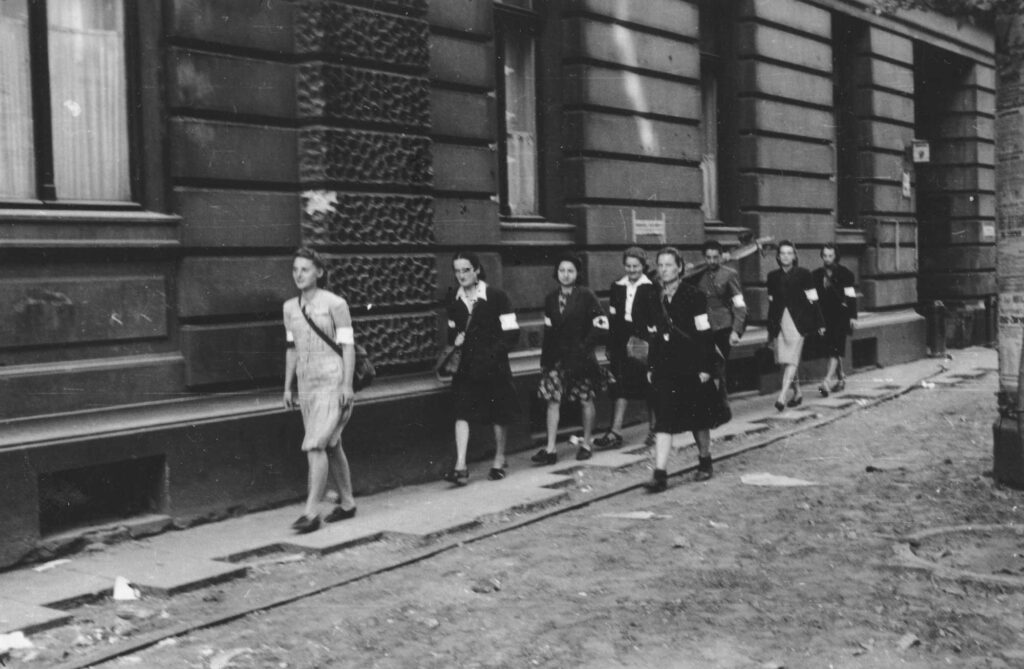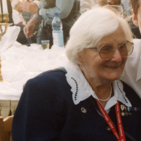Jadwiga Podrygałło took part in the defense of Warsaw in 1939. After the occupation she joined the resistance movement, helping Polish prisoners of war to escape from captivity. During the Warsaw Uprising in 1944, she served as a nurse and liaison officer.
Jadwiga Podrygałło was born in Warsaw in 1919. Before the war, she was a girl scout and then joined the Female Military Training. Furthermore, she was taught to shoot by her father.
Jadwiga became the commander of the anti-aircraft defense of the tenement house where she lived after the German attack on Poland in 1939. During the siege of Warsaw, Jadwiga helped in medical points and care centers for infants and small children.
After the fall of Warsaw on September 27, she joined the resistance. She helped organize escapes for Polish soldiers from the hospital, which was treated by Germans as a POW camp. Later, she organized housing for the needs of the resistance. Then she became a soldier of the “Dysk” – the unit of Women’s Diversion and Sabotage. “Dysk” dealt with blowing up railway tracks, bridges, viaducts and other strategically important objects for the Germans. Women from the unit also executed traitors and gestapo agents.
When the Warsaw Uprising began, Jadwiga could not reach her unit. Nobody knew her there, so they didn’t believe that she had undergone combat training. Jadwiga was short, of very slight build and could be taken for a child. That’s why she was sent to the back of the fighting. Finally, she ended up in a branch of the Home Army Group “Kryska”. She adopted the nickname “Cub”.
Jadwiga fought in the “Czerniaków” district, where a unit of several hundred Slovaks also fought on the side of the Home Army at that time. Jadwiga became a liaison officer with the Slovak forces. She was often sent with orders or to reconnoitre the area. Jadwiga had to run through the streets of ruined Warsaw under fire from the enemy.
After the capitulation of the Warsaw Uprising, Jadwiga evacuated with civilians from the city. However, she escaped from the German transport and came to Kielce. She engaged in clandestine teaching as a history teacher. There she married Stanisław, who was a delegate of the government-in-exile in Kielce. Both she and her husband were persecuted by the communists. Jadwiga died in 2015.

